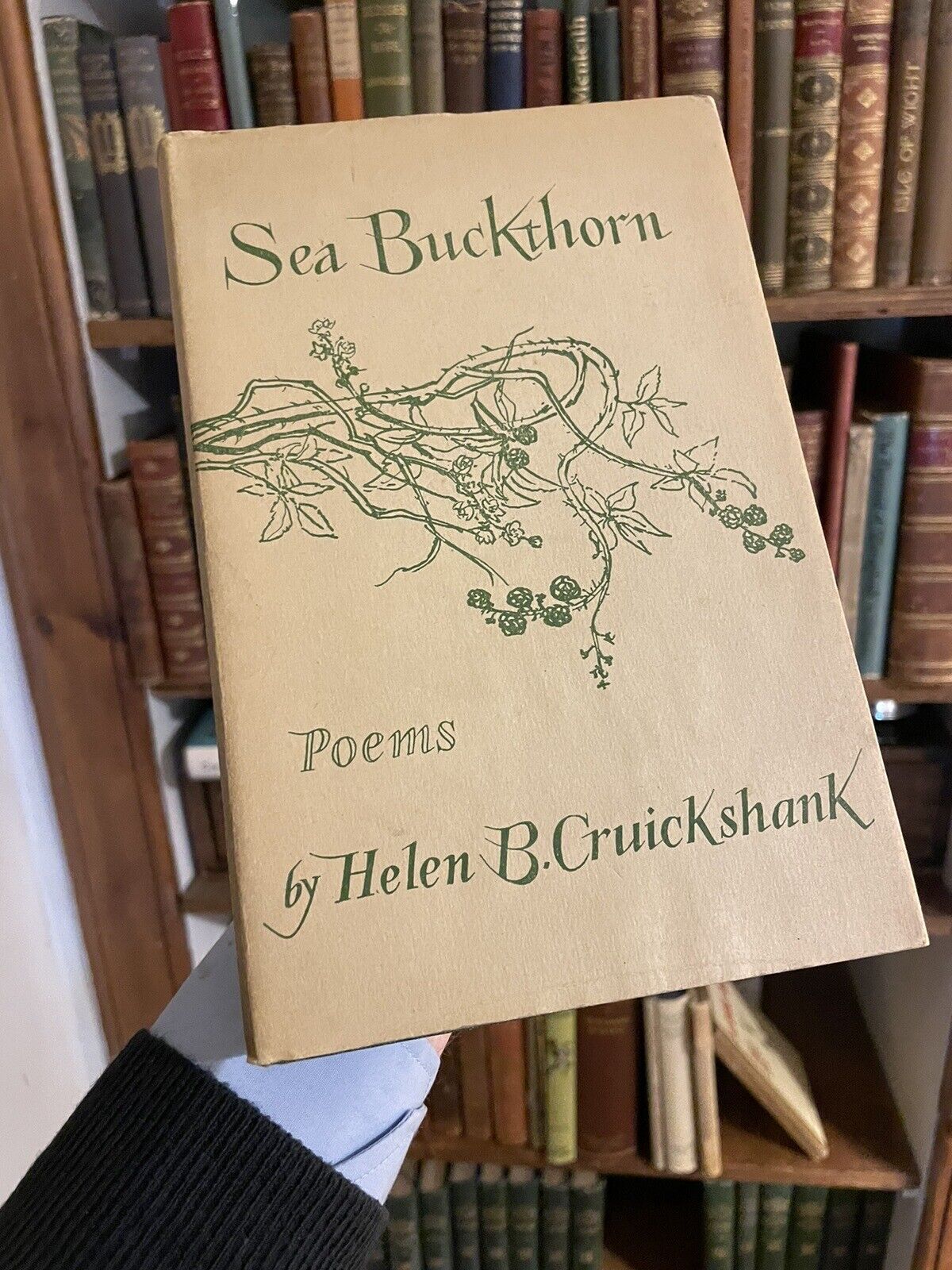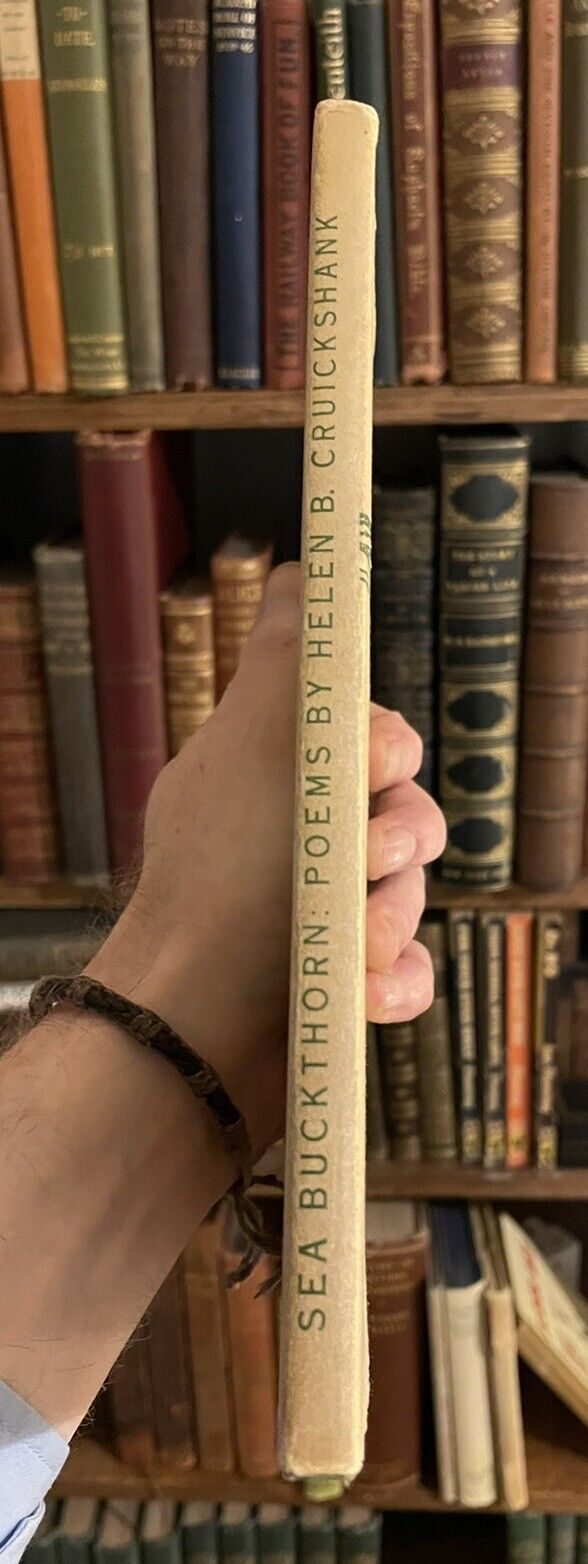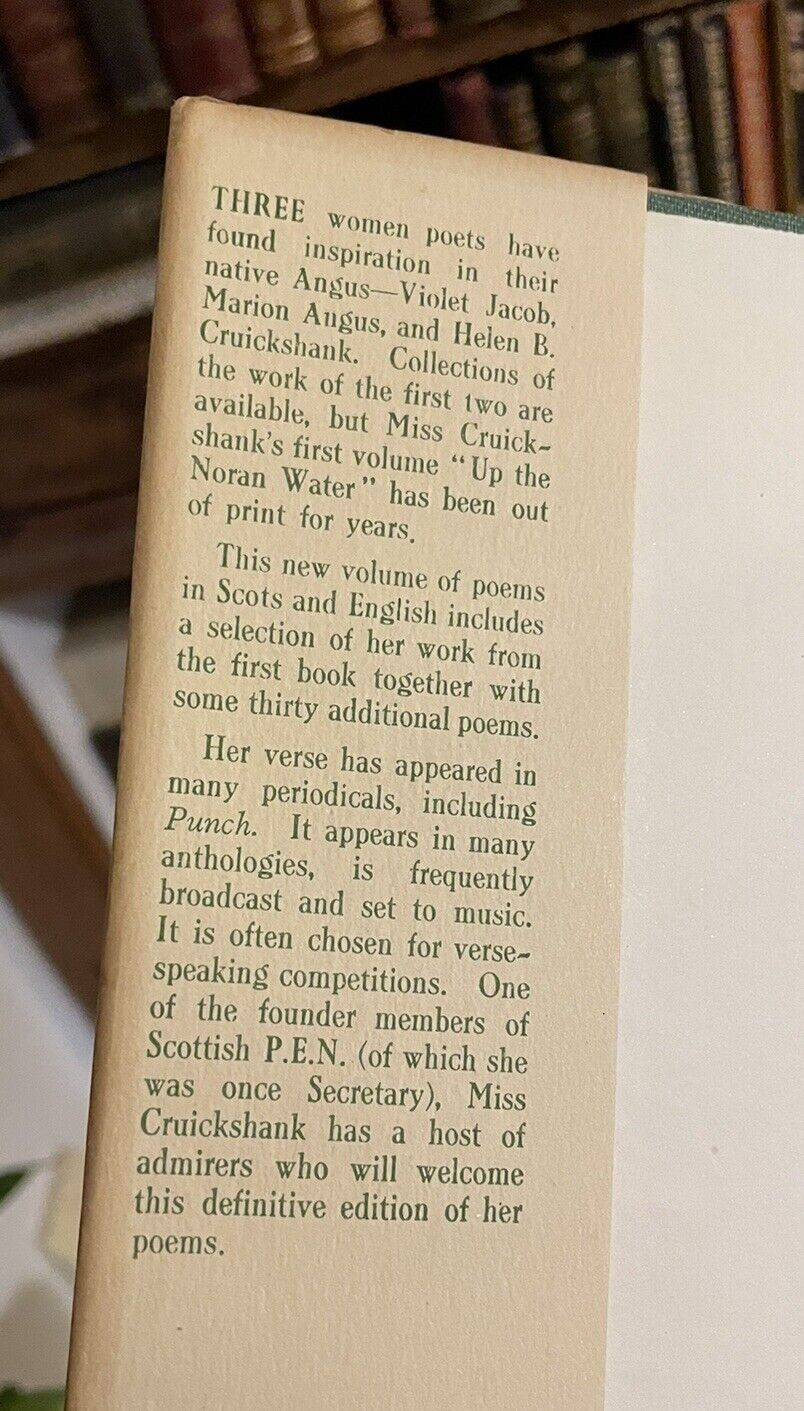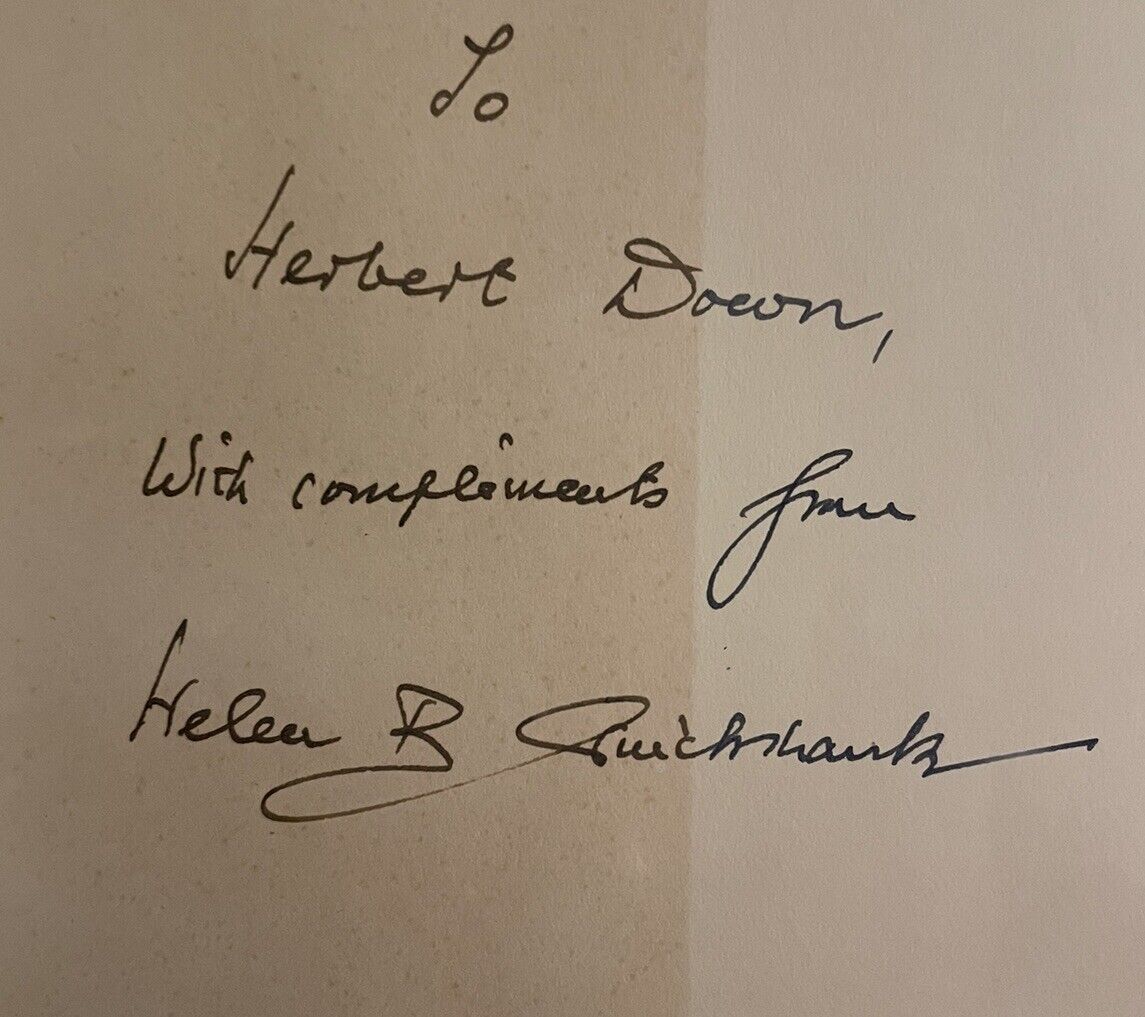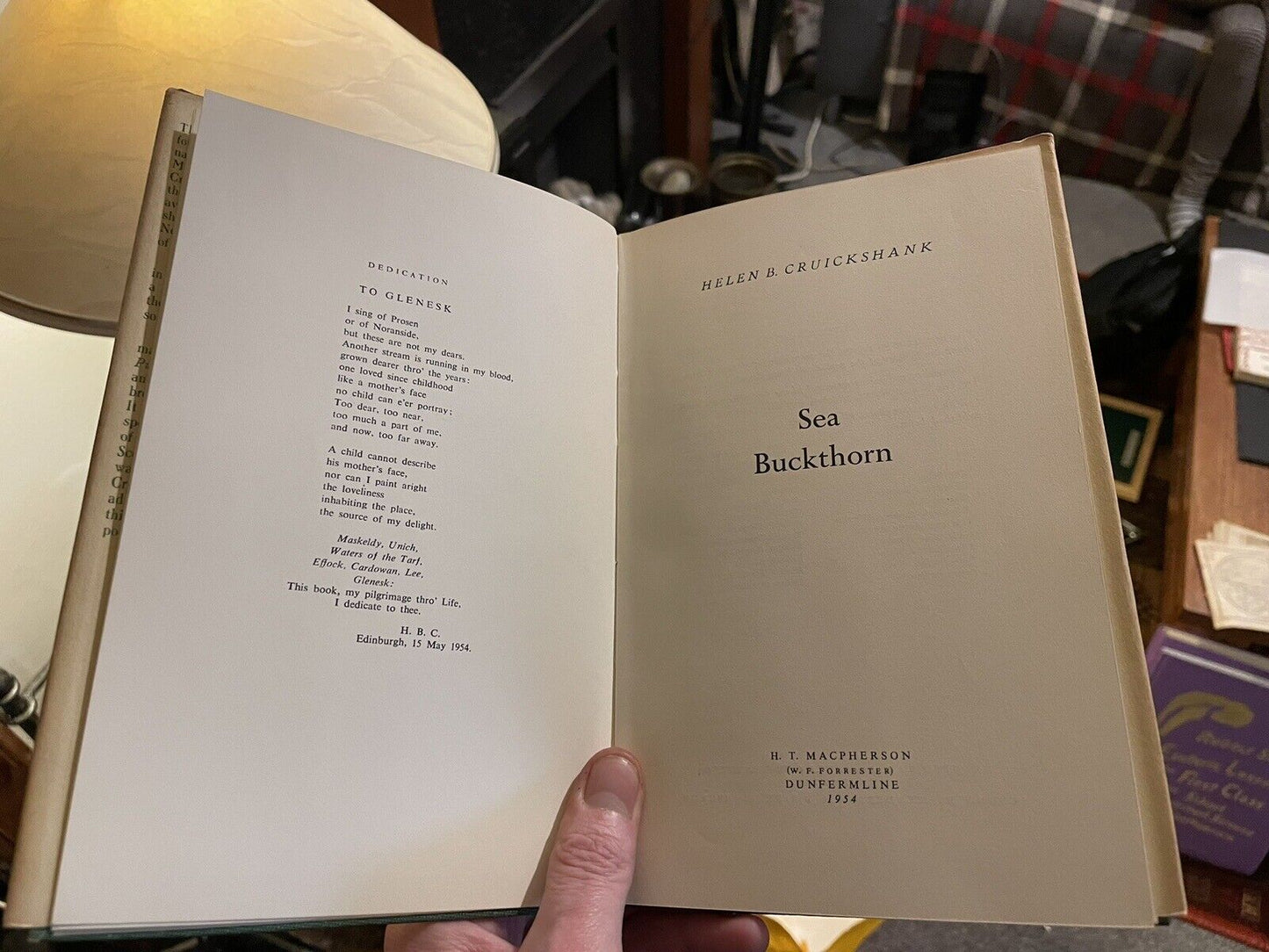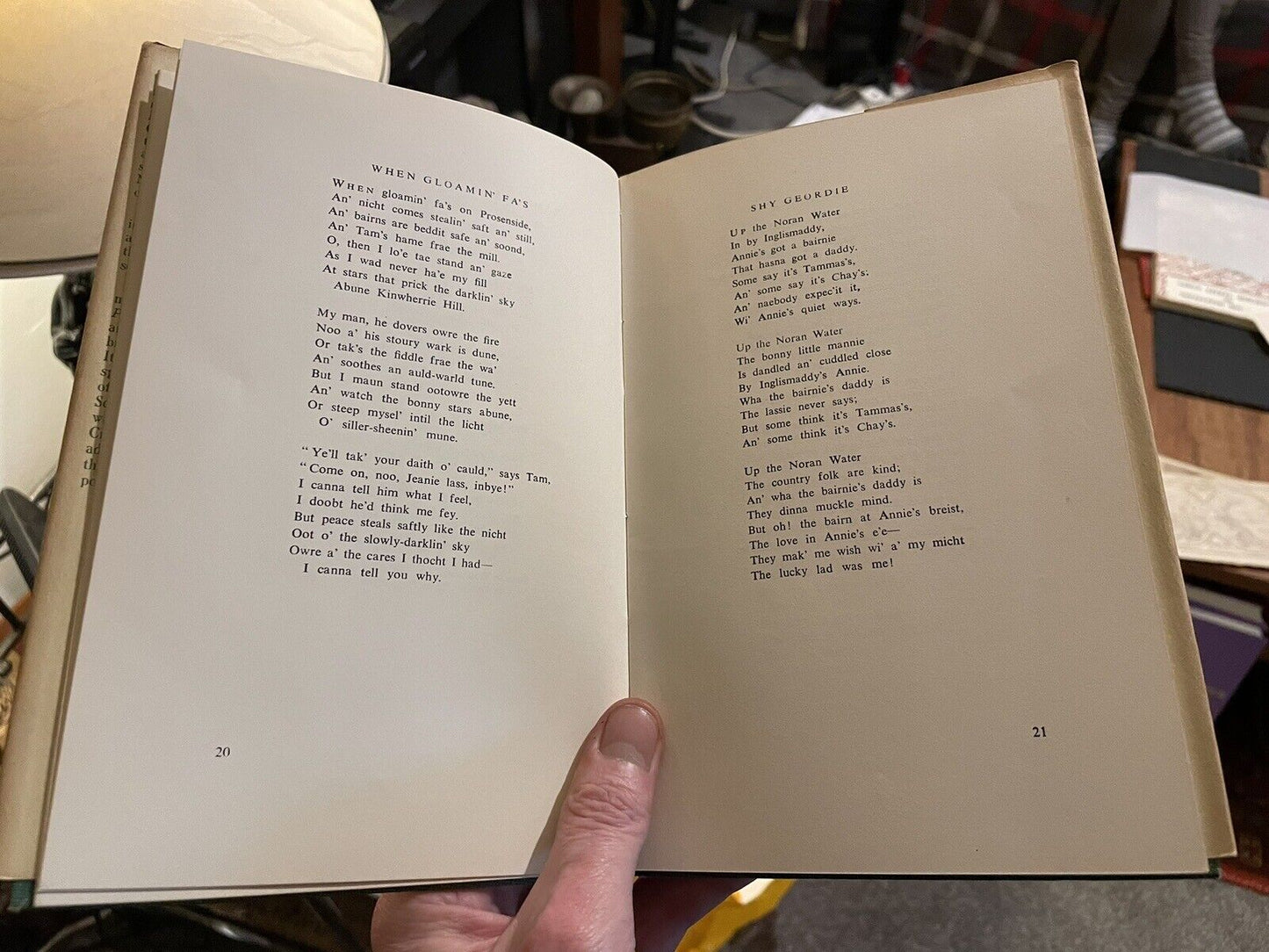The Gently Mad Book Shop
Sea Buckthorn; Poems by Helen B. Cruickshank SIGNED COPY Scottish Poetry 1954
Sea Buckthorn; Poems by Helen B. Cruickshank SIGNED COPY Scottish Poetry 1954
Couldn't load pickup availability
Sea Buckthorn; Poems by Helen B. Cruickshank
Published by H T Macpherson, Dunfermline, 1954. First Edition. Inscribed and signed by Cruickshank to the front endpaper, HArdback book in dust jacket, 58pp.
A very good copy of this scarce book. The dust jacket is price-clipped but otherwise good. All contents present and pages good throughout. Overall a good signed first edition.
Helen Burness Cruickshank (15 May 1886 – 2 March 1975) was a Scottish poet and suffragette and a focal point of the Scottish Renaissance. Scottish writers associated with the movement met at her home in Corstorphine.
Cruickshank's first collection, Up the Noran Water (1934), published by Metheun, was mostly written in Scots with a few poems being written in English. Helen as a proud Scottish nationalist became a founding member of the Saltire Society in 1936. However, Helen's writing had to be put aside as her work-load became heavier due to World War II. Helen worked on a scheme to evacuate children abroad, and also volunteered for fire-watching duties at night, in addition to her own job and caring for her mother. Helen's mother died in 1940.
After the war, Helen took on the role of an Executive Officer for the Department of Health in Edinburgh, a role she held until her retirement, on medical grounds due to duodenal ulcers, in 1944. After her health had recovered sufficiently, Helen began to entertain once more at Dinnieduff. She was an enthusiastic follower of the Edinburgh International Film Festival since its beginnings in 1947.
Helen's later works include Sea Buckthorn (1954), The Ponnage Pool (1968), Collected Poems (1971) and More Collected Poems (1978). She wrote poetry until the end of her life with her last unfinished poem being about a woman who cannot stop for death as she has too much to do.
(Platform; Scotland 1 )
Share with someone
